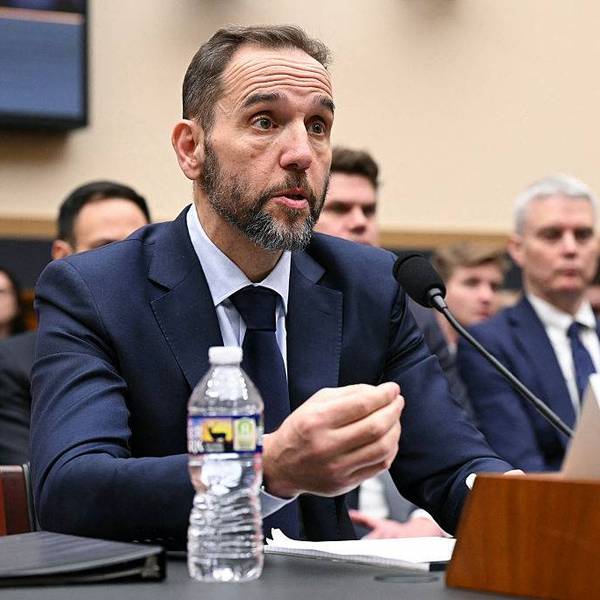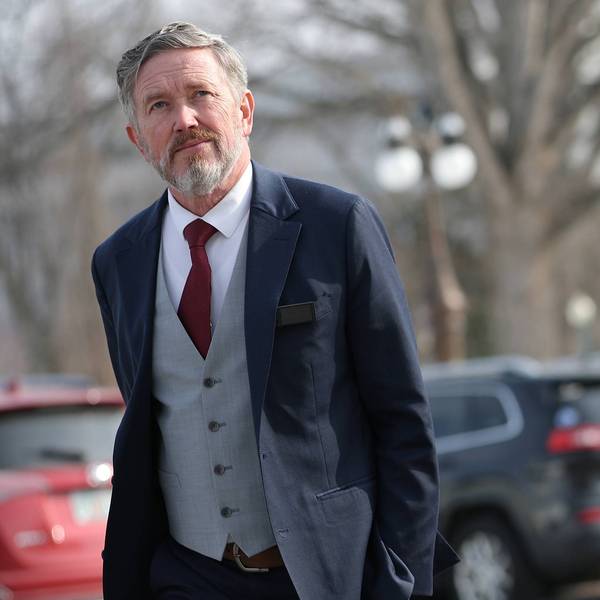For the past several weeks, media coverage of Attorney General Jeff Sessions has taken a sympathetic turn. In article after article, the "beleaguered" Sessions is described as a victim of bullying, under Twitter assault by the president who appointed him. Meanwhile, Trump--angry that the law-and-order man he chose did not live up to his idea of loyalty--seems to be taking some joy in Sessions's discomfort.
I have been reading about Sessions with a kind of perverse fascination--but I have not read anything that makes me feel sorry for him. The things he stands for--the things he has stood for over the course of his decades-long career--are abhorrent. The President's mean tweets haven't made Sessions's brand of law enforcement any kinder to poor and black and brown people.
Sessions has bought into Trump's false narrative about rising crime rates (which are actually near historic lows), and has proposed solutions founded on harsh punishment that's meted out with impunity. He wants to reinstate lengthy, mandatory sentences for nonviolent offenses, and plans to undermine Department of Justice mandates designed to reign in abusive arrest patterns in communities of color. He believes racism in policing is a fact of life, but believes that being called a racist is the worst thing that can ever happen to a person.
His policy goals reflect a characteristically Southern paternalism towards black people, imbuing him with the air of a Great White Disciplinarian. He maintains an impersonal distance from the concerns of underserved black communities, such as Charleston's Eastside, where I lived long enough to know that Sessions's stances reflect the attitudes of many white Southerners.
The impoverished Eastside community was judged harshly. Passersby pointed at the trash on the street and the homes in disrepair as they drove through town, and shook their heads at the teenage drug dealers who idled on street corners looking bored or depressed.
I remember one young dealer--tall and lanky, without a wrinkle on his face--that I used to pass by almost every day. I assumed he was new to the trade when he appeared on my street in between my apartment and the local corner grocery, and I had no intention of speaking to him. Nope. I wasn't giving encouragement.
Eventually, I noticed that he tended to frown and mutter at me when I passed by. I ignored him at first, but eventually his persistence made me curious. One day I stopped and listened. His hurried, garbled words astonished me.
"Teach me something," he said.
If Jeff Sessions' got his way, that young man would have been promptly arrested.
I didn't know what to say. So, we talked. He did not need me to lecture him or tell him he was wasting his life. He knew that he was on a dead-end track, and that he was barely literate. He told me he had dropped out of high school. He had applied for jobs as a dishwasher, but never got called back. So he did the one thing he could do to make money.
At the end of our first conversation, I promised that I would "educate him" by telling him a new fact every day when I saw him on the corner.
This isn't a cheesy Hollywood movie, so I'm not going to tell you that I changed his life by teaching him when the Constitution was ratified. No matter how many facts I shared, I could not give this young man what he really needed. I could not counteract the notoriously unequal South Carolina school system. I could not provide a decent summer job, a community energized by economic development, or a society committed to easing the plight of the people in poverty.
I knew I couldn't do that when I started. And by the time he disappeared from the street corner a few months later, I was sure I hadn't. He needed too much. The Eastside needed too much.
If Jeff Sessions' got his way, that young man would have been promptly arrested and given the harshest possible sentence. For him, that's the end of the problem. Put the criminal behind bars, and move on.
I would love to see that teenager teach Jeff Sessions a few facts. I would love to see him tell the Attorney General what it's like to be young, black, and full of hope for a better life and opportunities, but facing bleak options.
Maybe Sessions would learn that the law enforcement policies he favors will only perpetuate a vicious cycle of wasted lives. Maybe Sessions would learn that educational programs, substance abuse counseling, and economic opportunity accomplish more than harsh sentences.
Maybe.
Or maybe Sessions will at least soon learn what it's like to be unemployed--after the Donald fires Sessions during one of his tweetstorms.




